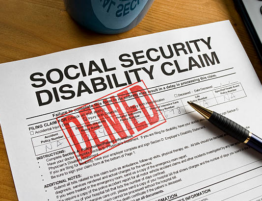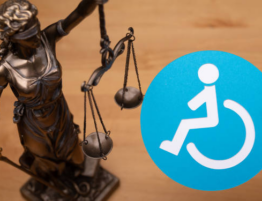
Being a stay-at-home parent is a full-time job. Many people choose this lifestyle because it benefits their lives and the lives of their children and spouse.
Unfortunately, even moms and dads can get sick or injured. In such situations, it’s difficult to find suitable help. For individuals who become unable to work due to a medical disability, Social Security Disability benefits are available. However, obtaining SSI (Supplemental Security Income) or SSDI (Social Security Disability Insurance) for a stay-at-home-parent is challenging.
Why Being a Stay-at-Home Parent is Beneficial
In certain households, the earnings of one parent are enough to sustain the entire family. This means the other parent can choose to stay home and take care of the children instead of seeking employment to pay for childcare. A lot of the time, it’s more financially advantageous for one parent to take on the role of “homemaker.”
Choosing to remain home with the children also creates opportunities to form a strong family bond. Parents have the privilege of watching their children grow and learn instead of spending time in an office or on a job site. They can also maintain the home environment more easily, such as by cleaning or grocery shopping while the kids are at school.
What Happens If a Parent Becomes Disabled?
In the event a parent becomes injured or falls ill, their capacity to complete everyday tasks and care for their children can be affected. For example, a mother may not be able to get out of bed if she has severe back pain or struggles with symptoms of cancer treatment. This would prevent her from picking her kids up from school, doing laundry, cooking, etc.
Assistance may become necessary in these situations. If the other parent is working full-time, help can be hard to find. However, some stay-at-home parents may qualify for Social Security Disability benefits.
Can a Stay-at-Home Mom Get Disability Benefits?
The Social Security Administration (SSA) doesn’t consider being a stay-at-home parent a normal, full-time job. However, despite this, some individuals can qualify for benefits.
Continue reading to learn about a few ways stay-at-home moms and dads can be eligible for disability.
Social Security Disability Insurance
To qualify for SSDI, a stay-at-home parent must have a sufficient work history. This means they have earned work credits throughout their lifetime by working jobs covered by Social Security. By paying Social Security taxes, they make contributions into the Social Security system. Applicants must have paid into the system to be eligible for Social Security Disability Insurance.
Supplemental Security Income
SSI is strictly awarded to disabled, blind, or aged individuals with limited income and resources. Many stay-at-home parents may not qualify for SSI if their spouse is earning enough income to support the family.
What If Your Spouse Works?
As stated above, SSI is not always available to stay-at-home parents. Nonetheless, SSDI may still be an option for disabled parents who have earned substantial work credits, regardless of their spouse’s earnings or their household income.
Spousal Benefit Eligibility
Sometimes, Social Security Disability can be obtained thanks to a spouse’s work history. Even if the stay-at-home parent has no work credits, they can still be eligible for benefits based on their partner’s earnings record if one of the following apply:
- The spouse is caring for a child younger than 16 years old or who is disabled
- The spouse is 62 years old or older
Contact Us for More Information
It’s not easy to live with a disability, especially when you’re responsible for taking care of your family.
If you’re asking, “Can a stay-at-home mom collect Social Security Disability?” reach out to the Patrick J. Kelly Law Office.
The disability claims process can be complex, but we help make it simple. We understand the ins and outs of the Social Security Administration’s guidelines and eligibility criteria. We can help you build your case and increase your chances of securing the benefits you need.
Contact us today to schedule a free consultation with our experienced Social Security Disability attorney.





